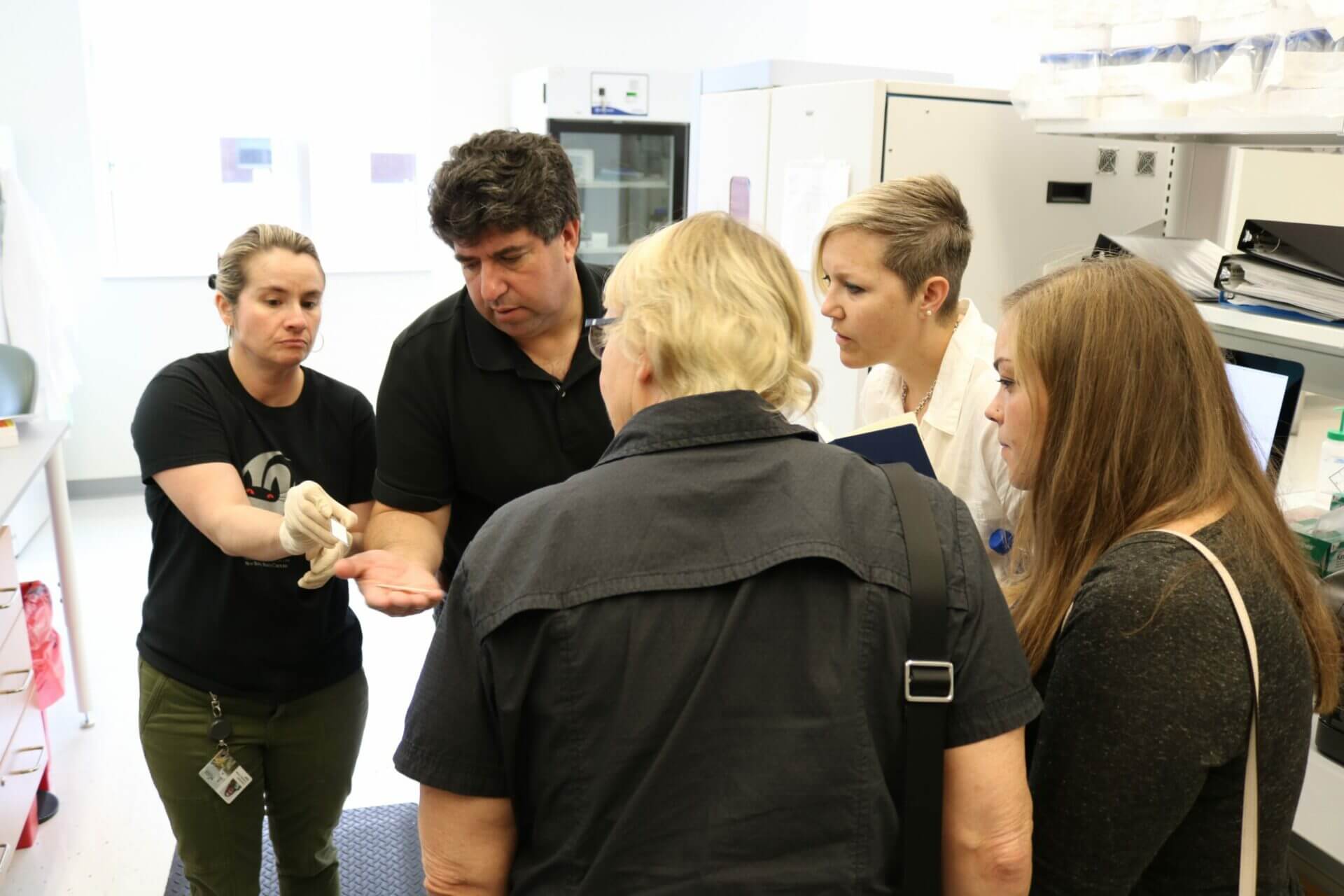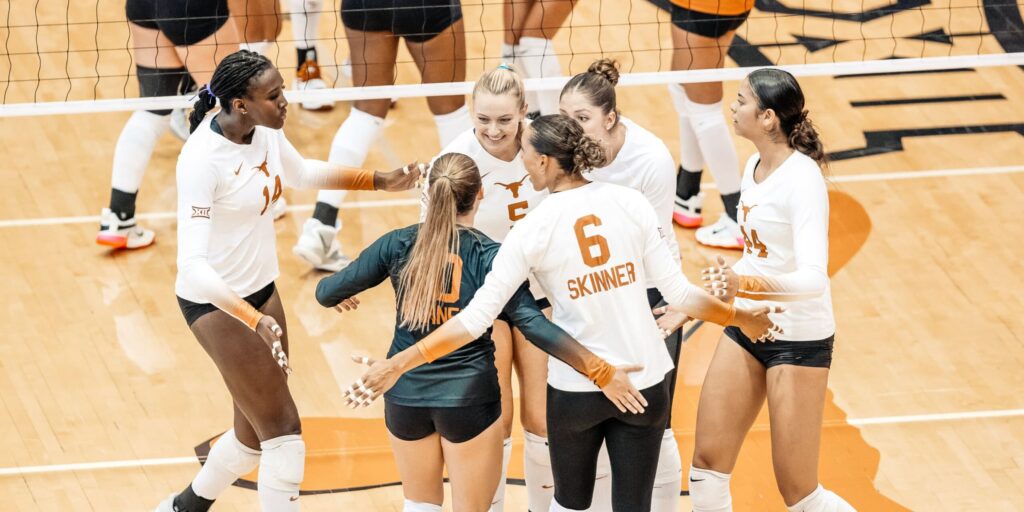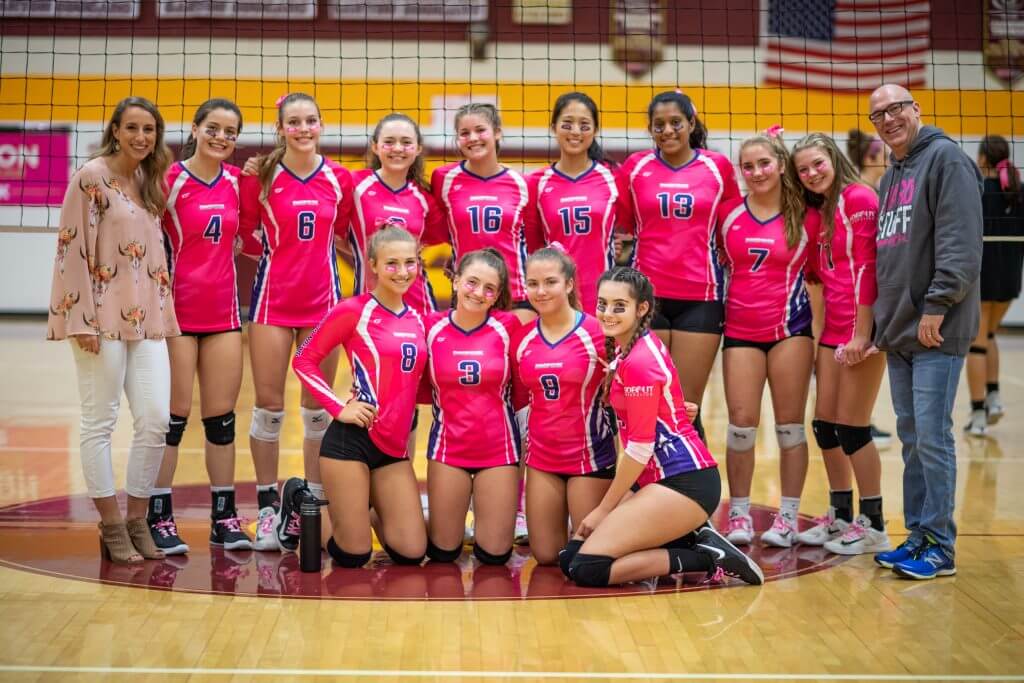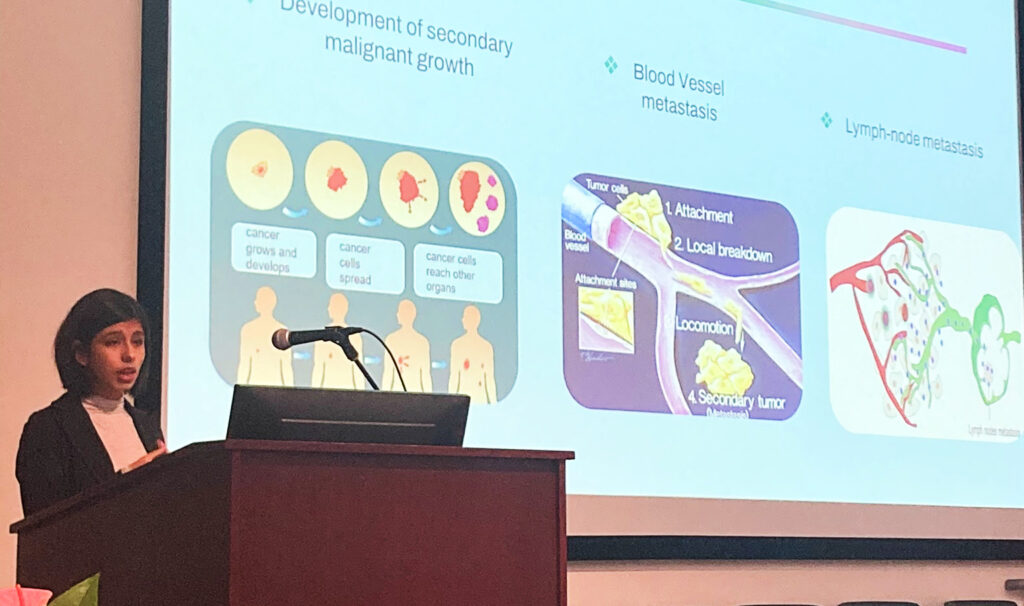With the COVID-19 pandemic constantly evolving, everyday activities have changed. The little things we would usually look past (like going to the movies or having lunch with friends) have left bigger gaps than anticipated now that they are limited. We have all had to adapt to this crazy new lifestyle and step into a new and uncomfortable way of life — but the special thing about this experience is that we are all in it together. Whether you’re an artist, doctor, teacher, or business owner, we are all navigating uncharted territory that requires each of us to adopt new habits.
Here at Side-Out, our research team of scientists has also had to shift gears to tackle cancer and COVID-19. From this change they have been able to gain new perspectives, learn more about their practice, and understand how they can help cancer patients through this pandemic.
Recently, cancer research scientists at George Mason University, with whom The Side-Out Foundation is partnered, have created a new test that measures COVID-19 antibodies. This test can help identify people who have been exposed to the virus. Using saliva, they are able to detect someone who has been infected with COVID-19 based on the presence of the antibodies, regardless of whether or not they have shown symptoms.
But how does a scientist just switch from cancer research to studying COVID-19?
I was able to talk with Dr. Emanuel “Chip” Petricoin to learn more about the specifics of why and how his lab and he are able to use their arsenal of diagnostic equipment and scientific expertise to study the virus.

“The laboratory that we’ve developed and used for Side-Out metastatic breast cancer trials is a specialized laboratory that measures and develops diagnostic tests for proteins,” Dr. Petricoin explained.
The George Mason University laboratory is CLIA (Clinical Laboratory Improvement Amendments) accredited, meaning that this laboratory can render a diagnostic report that is used for patient care and treatment decisions. This requires increased regulatory oversight and specific scientific expertise to run. Because of this Dr. Petricoin and his team are able to transition from cancer to COVID-19.
Dr. Petricoin expands on how the lab has helped them research COVID-19, saying, “We realized in the pandemic that we could take our laboratory infrastructure that we have used for the Side-Out trials and develop a COVID-19 antibody test.”
How Their Research Is Expanding In Cancer and COVID-19
Dr. Petricoin and his fellow GMU scientists are interested in how treatment used for cancer could possibly be repurposed for COVID-19, and vice versa. The COVID-19 virus activates protein pathways similar to those pathways activated in cancer cells, which could lead to repurposed treatment methods. In other words, some existing cancer therapies may prove to be effective therapies for COVID-19 as well.
The immune system, which plays an important role in fighting off both cancer and COVID-19, is also a key focus of their research. Oftentimes cancer patients are treated with chemotherapy that weakens their immune system in a specific way. The GMU scientists are studying ways to bolster these patients’ immune systems to better help them fight a COVID-19 infection.

With growing developments, our partnered scientists are making headway in the fight against COVID-19 and are making new discoveries.
Continuing their research, Dr. Petricoin says, “We feel lucky to have the environment and expertise that we have to help people in this difficult time. We appreciate the unique position we are in to so quickly transition and apply our background in cancer research to help combat this pandemic.”
If you would like to stay up to date on our research or receive information about the foundation, join our newsletter!







